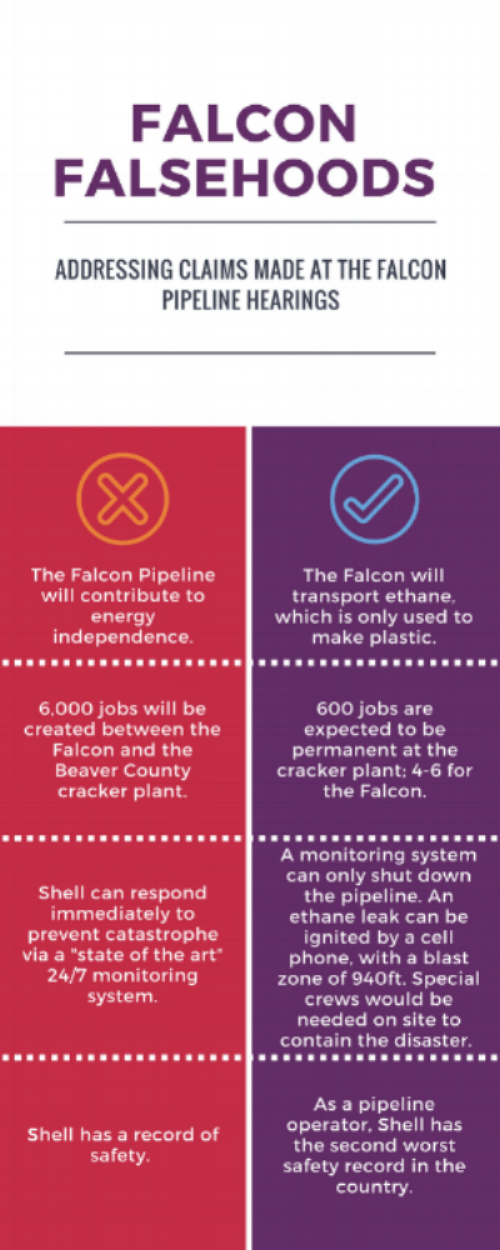Nearly 500 concerned residents of Beaver, Washington, and Allegheny Counties gathered on April 3, 4, and 5 in their respective counties to raise their concerns over the Falcon Pipeline. CCJ attended the hearings in Beaver and Washington Counties to represent our members and supporters.
Specific to Washington County, CCJ is concerned that the pipeline will be built in an area where subsidence places the integrity of the pipeline at a greater risk, and therefore would place those living in the pipeline’s path at a greater risk. In 2015, an ATEX pipeline in West Virginia ruptured, causing an explosion which damaged the nearest house 700 feet away. Subsidence in Washington County can be difficult to predict for two reasons: first, a lot of mining within the county happened a long time ago, and mine maps for these legacy areas are not always accurate and are sometimes nonexistent; also, if mining utilized room and pillar techniques, the surface may not have subsided yet, meaning that the subsidence event could still happen. Washington County also has large karst formations, which are responsible for the sinkholes that are a growing problem with the Mariner East pipeline. Karst also allows pollutants to travel swiftly and widely, meaning that a spill in a karst-heavy area would affect a larger area than in an area where there is no underlying karst. These more localized issues, coupled with the broader effects to the Pittsburgh region, raise the question of whether Shell can safely build, operate, and maintain this pipeline.

One of CCJ’s major concerns over the proposed plans for the Falcon Pipeline is the fact that, should the pipeline leak and contaminate the headwaters of the Ambridge Reservoir, 30,000 people would be without safe drinking water. The lack of safe drinking water is already an issue that affects so many across the country, whether by lead pipes or de-watered wells, and it is unconscionable that we would add to this crisis by permitting an unnecessary pipeline.
While anti-Falcon residents were in the majority at these hearings, a group of pro-Falcon residents were also in attendance. Predominantly industry representatives or union workers, stressed the importance of new jobs for reviving the Rust Belt. “Jobs” was not the only pro-Falcon claim made at these hearings: check out our infographic to see just what was said and how the major points were not quite accurate.
